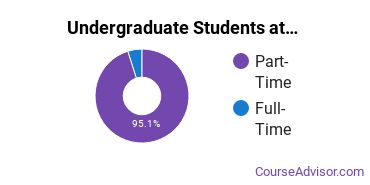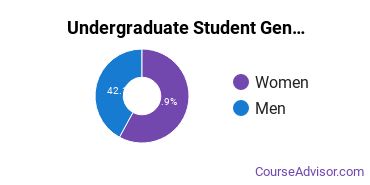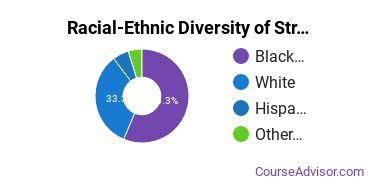Strayer University - Tennessee Overview
Strayer University - Tennessee is a private for-profit institution situated in Memphis, Tennessee. Memphis is a great location for students who prefer city over country life.
What Is Strayer University - Tennessee Known For?
- The highest award offered at Strayer University - Tennessee is the master's degree.
- In a recent academic period22% of the faculty were full-time.
Where Is Strayer University - Tennessee?

Contact details for Strayer University - Tennessee are given below.
| Contact Details | |
|---|---|
| Address: | 2650 Thousand Oaks Blvd Ste 1120, Memphis, TN 38118 |
| Phone: | 877-445-7180 |
| Website: | www.strayer.edu |
How Do I Get Into Strayer University - Tennessee?
You can apply to Strayer University - Tennessee online at: https://application.strayer.edu/
Can I Afford Strayer University - Tennessee?
Student Loan Debt
While almost two-thirds of students nationwide take out loans to pay for college, the percentage may be quite different for the school you plan on attending. At Strayer University - Tennessee, approximately 100% of students took out student loans averaging $9,401 a year. That adds up to $37,604 over four years for those students.
Explore Best Ranked Schools for You
Strayer University - Tennessee Undergraduate Student Diversity

There are also 432 graduate students at the school.
Gender Diversity
Of the 140 full-time undergraduates at Strayer University - Tennessee, 42% are male and 58% are female.

Racial-Ethnic Diversity
The racial-ethnic breakdown of Strayer University - Tennessee students is as follows.

| Race/Ethnicity | Number of Grads |
|---|---|
| Asian | 2 |
| Black or African American | 73 |
| Hispanic or Latino | 5 |
| White | 53 |
| International Students | 0 |
| Other Races/Ethnicities | 7 |
Geographic Diversity
Tennessee students aren't the only ones who study at Strayer University - Tennessee. At this time, 6 states are represented by the student population at the school.
Strayer University - Tennessee Undergraduate Concentrations
The table below shows the number of awards for each concentration.
| Major | Associate’s | Bachelor’s | Graduate Certificate | Master’s | TOTAL |
|---|---|---|---|---|---|
| General Business/Commerce | 110 | 130 | 0 | 0 | 240 |
| Business Administration & Management | 0 | 2 | 0 | 54 | 56 |
| Entrepreneurial Studies | 0 | 0 | 27 | 0 | 27 |
| Criminal Justice & Corrections | 0 | 27 | 0 | 0 | 27 |
| Accounting | 9 | 7 | 0 | 3 | 19 |
| Computer Information Systems | 0 | 18 | 0 | 0 | 18 |
| Educational Administration | 0 | 0 | 1 | 17 | 18 |
| Health & Medical Administrative Services | 0 | 0 | 0 | 14 | 14 |
| Human Resource Management | 0 | 0 | 0 | 13 | 13 |
| Public Administration | 0 | 0 | 0 | 13 | 13 |
| Information Technology | 9 | 0 | 0 | 1 | 10 |
| Information Science | 0 | 1 | 0 | 4 | 5 |
| International Business | 0 | 0 | 0 | 0 | 0 |
| Marketing | 0 | 0 | 0 | 0 | 0 |
| Nursing | 0 | 0 | 0 | 0 | 0 |
| Economics | 0 | 0 | 0 | 0 | 0 |
| TOTAL | 128 | 185 | 28 | 119 | 460 |
References
*The racial-ethnic minorities count is calculated by taking the total number of students and subtracting white students, international students, and students whose race/ethnicity was unknown. This number is then divided by the total number of students at the school to obtain the racial-ethnic minorities percentage.
More about our data sources and methodologies.
